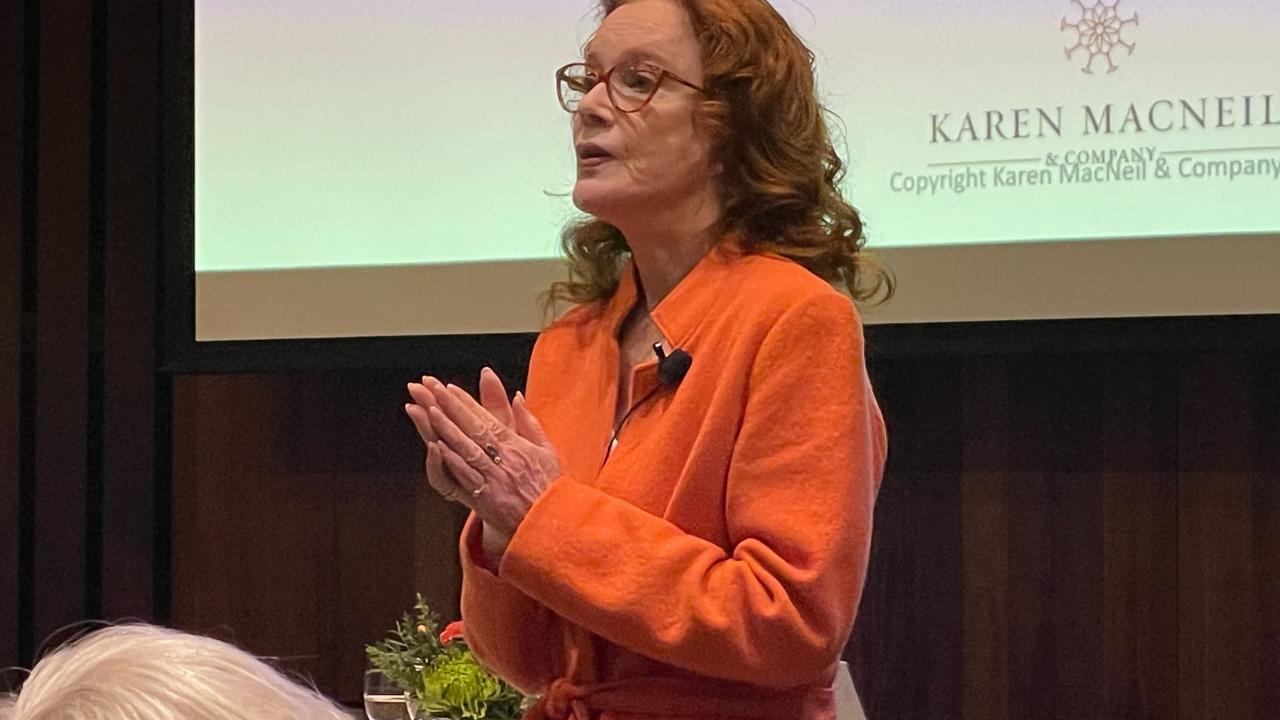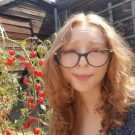
The Future of Wine Writing in a Changing Industry with Karen MacNeil
Wine is more than just a drink. It tells a story in every glass. But in a world of Dry Januarys and Sober Octobers, what happens to the art of wine journalism? Karen MacNeil, a leader in wine education, explored this topic in her lecture, Nothing Left to Say, at the Robert Mondavi Institute on March 13, 2024.
The Changing Landscape
MacNeil unpacked the current state of wine consumption, the future of wine writing, and the cultural shifts reshaping the industry. To illustrate these shifts, she asked the audience, “Does anyone know the number one best-selling wine introduced last year?” The answer was Stella Rosa Pineapple and Chili Wine, which surprised the crowd and highlighted the changing tastes of today’s wine drinkers.
She followed with another striking statistic. “Ready-to-drink cocktails (RTDs) now sell 3.6 million cases annually. That is more than the total volume of wine sold in the U.S.”
MacNeil also shared some sobering insights into the state of wine journalism. “Wine writing as we know it is disappearing,” she said. Once common in American newspapers, only two now employ full-time wine journalists, down from hundreds.
As wine writing declines, another challenge looms, Generative Artificial Intelligence (AI). “AI can already write any basic wine piece,” she noted. However, while AI can mirror facts, it falls short of capturing the depth, nuance, and humanity that define great wine storytelling.
Why Is Wine Important?
AI isn’t the only one struggling to put wine’s meaning into words. MacNeil shared a story about asking five winemakers, "Why is wine important?" Each was visibly taken aback, unsure how to respond. "They didn’t know what to say." This moment revealed a problem. Winemakers often struggle to explain why wine is special.
MacNeil believes that winemakers and wine writers have a duty to preserve the beauty, awe, and wonder of wine. Wine tells the story of the land, the people who care for it, and the traditions they pass down. Without these stories, wine risks losing the meaning and magic that make it extraordinary.
The Future of Wine Journalism
Despite the challenges, MacNeil remains hopeful. Her book, The Wine Bible has now sold over 1 million copies. "So I have to be optimistic," she said. “Optimistic that the stories of people and places are inherently gravitational stories. And that why wine matters, why wine is important is a question that should continue to be asked and continue to be written about.”
For MacNeil, wine journalism must go beyond tasting notes and reviews. It has a responsibility to share the people, culture, and history that give wine meaning and to inspire others to care.
To dive deeper into wine journalism’s future and MacNeil’s insights, watch the full event.
What Is the Walt Klenz Lectureship Series?
This event is part of the Walt Klenz Lectureship Series. The series brings world-renowned winemakers and industry professionals to the UC Davis campus, offering the community and students valuable insights, perspectives, and experiences from leaders in the wine industry. It was established in 2005 through a pledge by Beringer Blass Wine Estates to honor CEO Walt Klenz upon his retirement and is sponsored by Treasury Wine Estates.

Kaylianne Jordan is a junior transfer student studying Viticulture and Enology at UC Davis. She has a background in culinary arts and a passion for sustainable farming and enjoys exploring the connections between agriculture, winemaking, and community. Outside of college, she loves trying out new recipes, discovering local food spots, and spending time with friends in the outdoors.
